Family of football club 'legend' from County Durham receive award
- Published
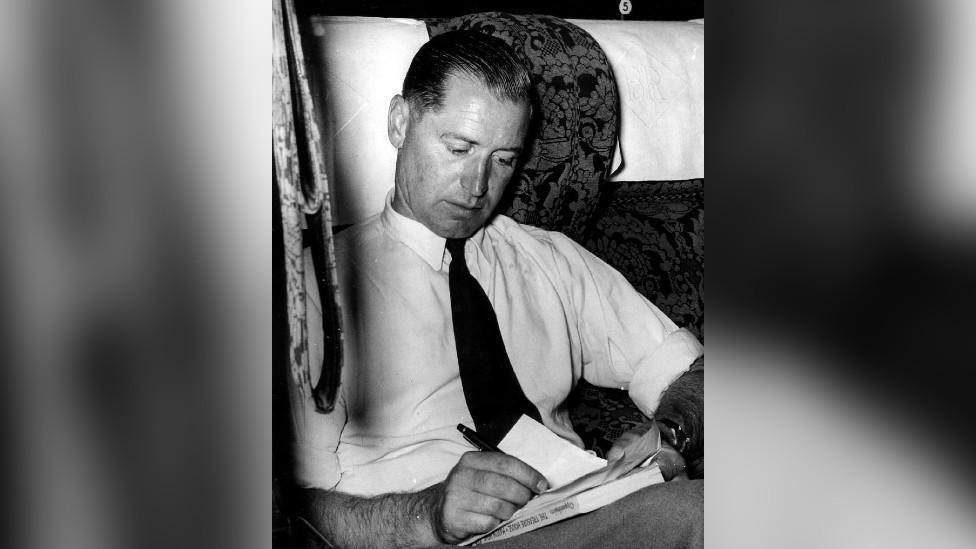
Joe Gardiner was Wolves' trainer during the "greatest period" in the club's history
The family of a man who spent most of his life working for Wolverhampton Wanderers FC said they are "very proud" of him being inducted into the club's Hall of Fame.
Joe Gardiner spent more than 50 years as a player and coach at Molineux.
He signed for the club in 1932 after his talent was spotted playing for Durham County and Bearpark Juniors, where he was born and grew up.
He helped Wolves win the FA Cup twice and the league title three times.
The club said he was part of the team during its "greatest period".
Wolves contacted BBC Radio Newcastle in May in a bid to trace family members of Gardiner, who never married.
He was one of 36 players and managers to be inducted into their Hall of Fame.
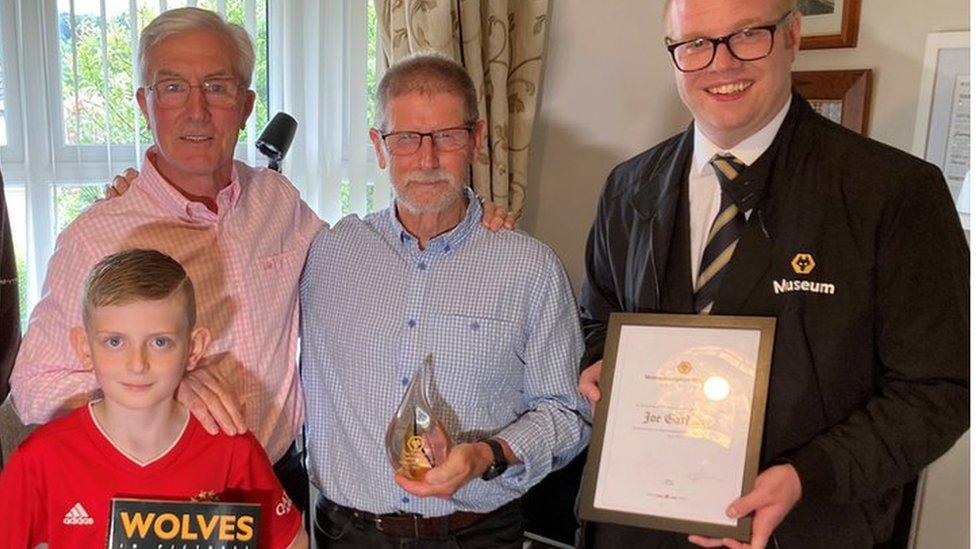
John Gardiner (holding glass award) and Jamie Gardiner (front) with John Richards the chairman of the Hall of Fame committee (left) and Peter Crump from Wolves Museum (right)
It led to his nephew John Gardiner being traced.
Receiving the award he said: "When I was in my teens I realised how important Uncle Joe was to the club, both as a player and as an-almost assistant manager, scout and particularly in his role helping younger players
"He was never unfair and I can't ever imagine him shouting, he was a lovely man."
Gardiner was snapped up by Wolves at the age of 16, Derby County and Huddersfield Town had also been after him, after he collected 11 football medals while at school and went on to impress as an inside forward for Bearpark Juniors.
He had to work in a garage until he was old enough to start playing for Wolves and made his debut against the club's Black Country rivals West Bromwich Albion in February 1935.
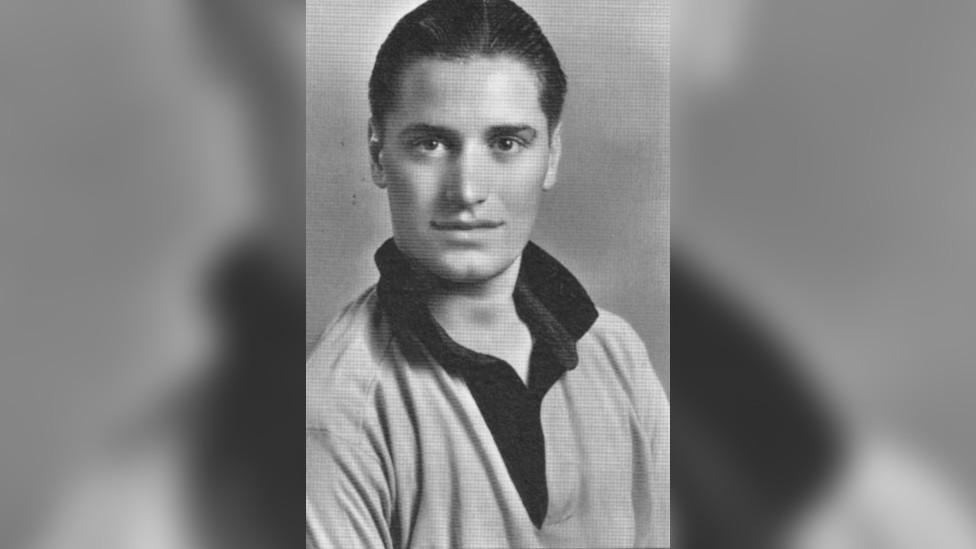
Gardiner signed for Wolves in 1932 after playing for Durham County and Bearpark Juniors
He made 139 league and Cup appearances as a player but after hanging up his boots joined Wolves' training staff.
When Stan Cullis became a manger in 1948 he appointed Gardiner his "right-hand man".
Former player Dennis Wilshaw said: "I think that Joe Gardiner was responsible for a lot of the success that we had.
"He was the guy you could go up to when you'd just had a rollicking off Stan and he'd comfort you and he would say something good and he'd lift you. "
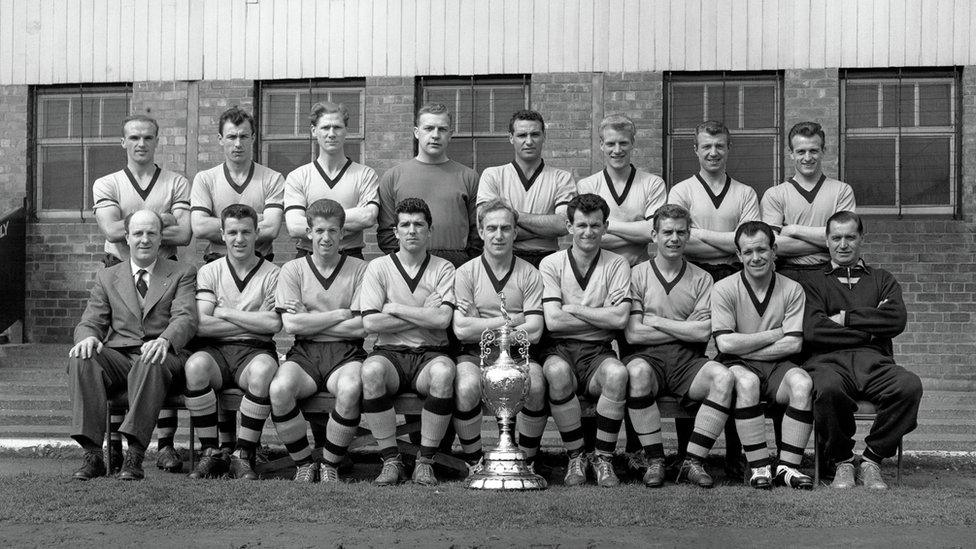
Former player Dennis Wilshaw said Gardiner was "responsible for a lot of the success" the club had
Norman Deeley, the goal scoring hero of the 1960 FA Cup final, recalled: "Joe was Wolves in many ways. He was there from morning 'til night.
"He was a quiet man who just got on with the job. Joe was placid and the ideal man to put up with someone as intense as Stan."
Bill Slater, skipper of the 1960 Cup-winning side, said: "I never heard him put a player down. He was always encouraging. He was a lovely man, who never swore and one of those who made the club special. It was always a very happy club."
In 1965 Gardiner became assistant team manager and the following year became chief scout.
Receiving the Hall of Fame certificate, his 10-year-old great-great nephew Jamie Gardiner, a Newcastle United fan, said he had a "very, very cool great uncle".
"I've heard stories that he was a legend and won a lot of stuff with Wolverhampton which makes you feel proud," Jamie added.
"And he got famous because of what he loved, if it was like today and he'd have won the Premier League three times he'd be very famous."
Although Gardiner died in 1997, the club said they wanted his name to live on for "bringing gold and black glory years to Molineux".
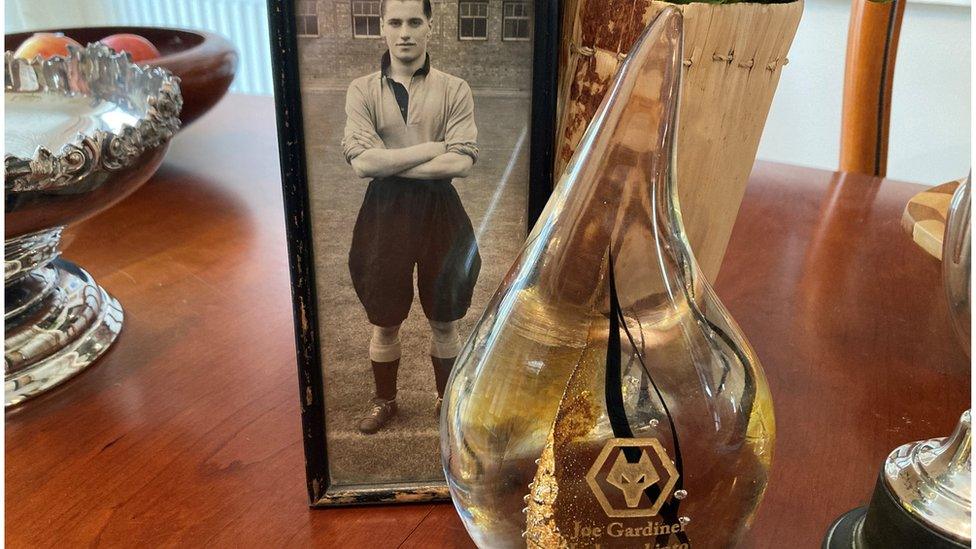
The glass award marking Joe Gardiner's induction into Wolves Hall of Fame

Follow BBC North East & Cumbria on Twitter, external, Facebook, external and Instagram, external. Send your story ideas to northeastandcumbria@bbc.co.uk, external.